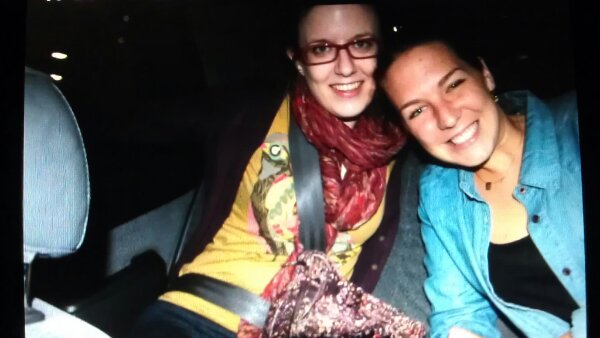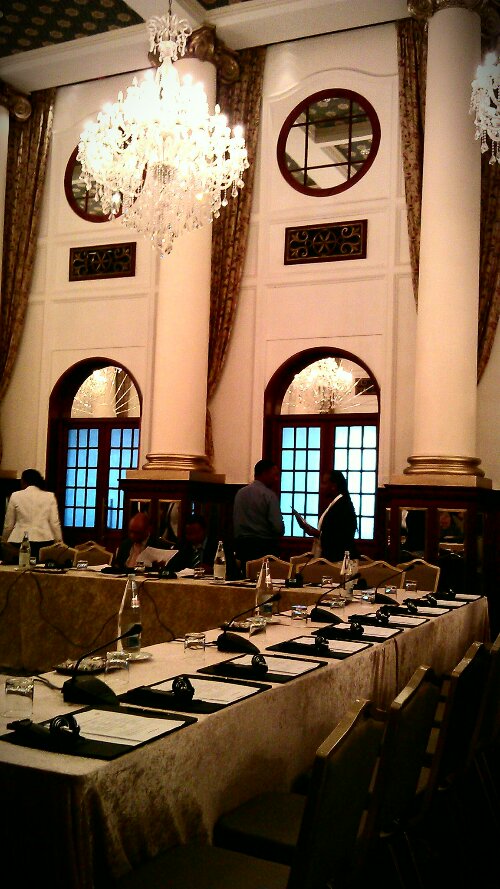Category: Africa 2012
Inclusive

On the first day of the conference that we organised here in Maputo, I was responsible for taking the group photo of all the participants. Getting all the people to stand together wasn’t the easiest of tasks, and people were being slow and a bit confused.
So when I finally got them all to stand in the front of the beautiful ballroom, there was a heavy silence. I was preparing the camera and suddenly realized I had a huge group of ambassadors, parliamentarians, professors, students and NGO people in front of me, waiting for my command.
I took the camera down, smiled and said “Wow.. Hello!”. They laughed, and I took a couple of shots.
And that was that. A group photo, not very complicated.. but then, yesterday, a girl from one of the ministries approached me.
“I just want to smile every time I see you, what you did was amazing!”
I didn’t have any idea about what she was referring to..
“You don’t understand, it’s a very complex and sensitive matter. Yesterday, when you asked all of us to stand in front of the room, people were in shock. You just put all of us, the parliamentarians, the ambassadors and us, the normal people – together! Here, in Mozambique, we always take two photos: One of the VIP’s, and one of the rest of the people – they usually don’t want to be on the same picture as us – but yesterday you forced them to. And it was so easy, you just said something funny and asked us to smile. Normal people and VIP’s – we laughed together – and we all loved it!”
Damn, the most random of things one can accomplish when accidently making a cultural faux pas. I guess sometimes it’s just better not to know these things. Also, the exchange of experiences, values and ideas couldn’t have started off in a better way. Especially for a conference that the Nordic countries had organised, where the theme was inclusive growth. Inclusive. And my camera will always be blind for hierarchy anyway.
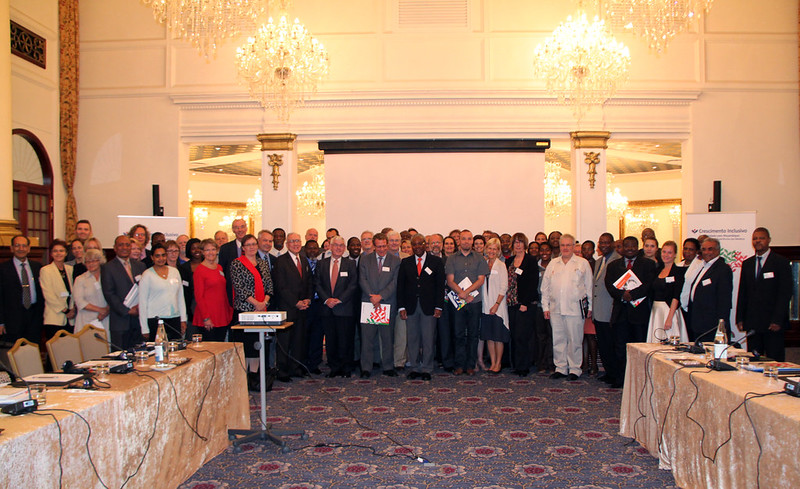
Crescimento Inclusivo
Thank you, Azgo
Azgo
Invitation to dance
Monotone ft. Ruby Gold – Invitation to dance
Monotone played at the Azgo festival street party yesterday. So did Napalma. It was great. And as promised, we danced até amanhecer.
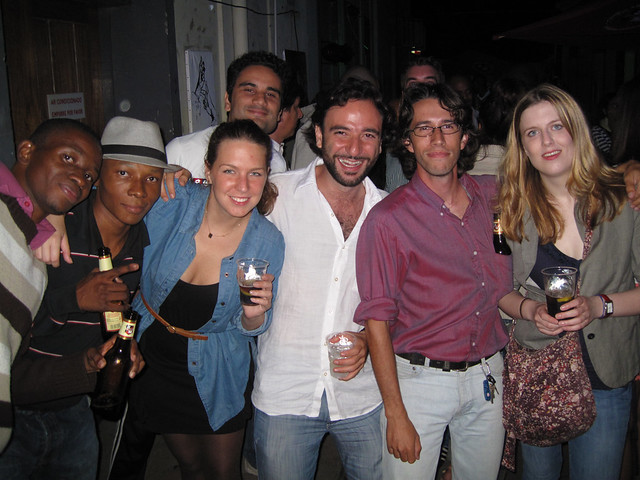

After an intense Friday at work, 1,5 hours of yoga and great amounts of dancing, singing and hopping around – my whole body is aching today in a way that I actually don’t mind at all. On the contrary, it reminds me of that beautiful euphoria that dancing gives me. It lasts for days and I can’t get enough.
Fruit & quality of life
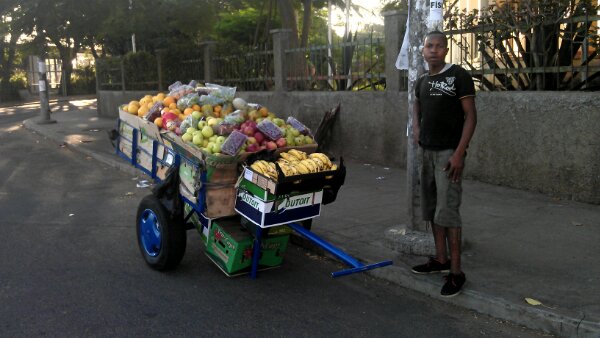
Every time I see these guys I have to buy something. Being able to get fresh fruit right outside your door is just one of the many random things here in Maputo that I consider luxuries. I’m in one of the world’s poorest countries, there are holes in the roads and I pass by at least one person every day that is eating from the big trash containers. Sometimes it smells bad. People sleep on the streets, small children come up to you begging for just a little piece of bread.
I have decided to never stop noticing these people, as is the tendency after being here for a couple of months. It’s natural. You block things out, you get used to them, you stop seeing them – you can’t do anything about it anyway and you don’t want it to make you feel bad. I’m not criticizing that, it’s the only way for many people to be able to bear with their daily life’s here. There is no simple solution to Mozambique’s problems and one can’t cry about them every day.
However, I have actively chosen to do my best to never stop seeing the things that are wrong around here. It’s difficult also because it’s just natural to start taking things for granted, a week is enough for the brain to automatically merge that man sitting in the corner every day with the façade of the building. So I’m trying hard to stay focused on the details, I look at the trash, I try not to look away when spoken to, I do my best to answer kindly. I say hello.
Then, at the same time, being aware of all this, I have to work hard to allow myself to enjoy the things that I know most of this country’s population never will get to experience. I am justifying little luxuries with the fact that it won’t help anybody if I feel bad about myself and stop consuming things. I’m not going to starve myself and eat nothing but the corn paste xima during my stay here just because that’s what many people’s reality looks like. I’m not going to stop doing things that I like doing. It wouldn’t make any sense. My aim is to do my best to contributing to somehow improving other people’s quality of life, not to lower mine.
So, I’m in Mozambique, one of the world’s poorest countries. But this is also the country that has been providing me with a very high quality of life. It’s not only the fresh fruit and cheap cashew nuts on the street that I buy almost daily, it’s the amazing seafood, the very calm and kind people, the way things always work themselves out, the peaceful athmosphere, the music, the beaches and proximity to great places.. and as I don’t have a beach or park to go to here in Maputo, I sometimes walk over to the nearby hotel where I buy a drink, sit by the pool, and allow myself to feel like a princess.


Azgo festival
Foi numa tarde de domingo
They call me Carol around here. Here’s a song about it.
Jorge Ben e Toquinho – Carolina Bela
Toquinho (1970)
Towards a Food Secure Future
UNDP released the new Africa Human Development Report 2012 yesterday. This year, it focuses on food security as a precondition for sustained human development in sub-Saharan Africa. Being based in Africa at the moment, and with my experience of and continued commitment to the mandate of the WFP, this is a golden opportunity for me to learn more about how to combat hunger and how Africa is doing in the matter – with the help of well written and comprehensive texts and fresh-out-the-box stats in pretty graphics.
I attended the global launch of UNDP’s 2011 Human Development Report in Copenhagen – and I’m a complete sucker for this kind of publications. They are the result of incredible amounts of work and research, and even though the numbers don’t always give you the complete picture of what the issues actually are, as the common problem with statistics is – they are excellent at providing an overview of and understanding for what the world looks like.
